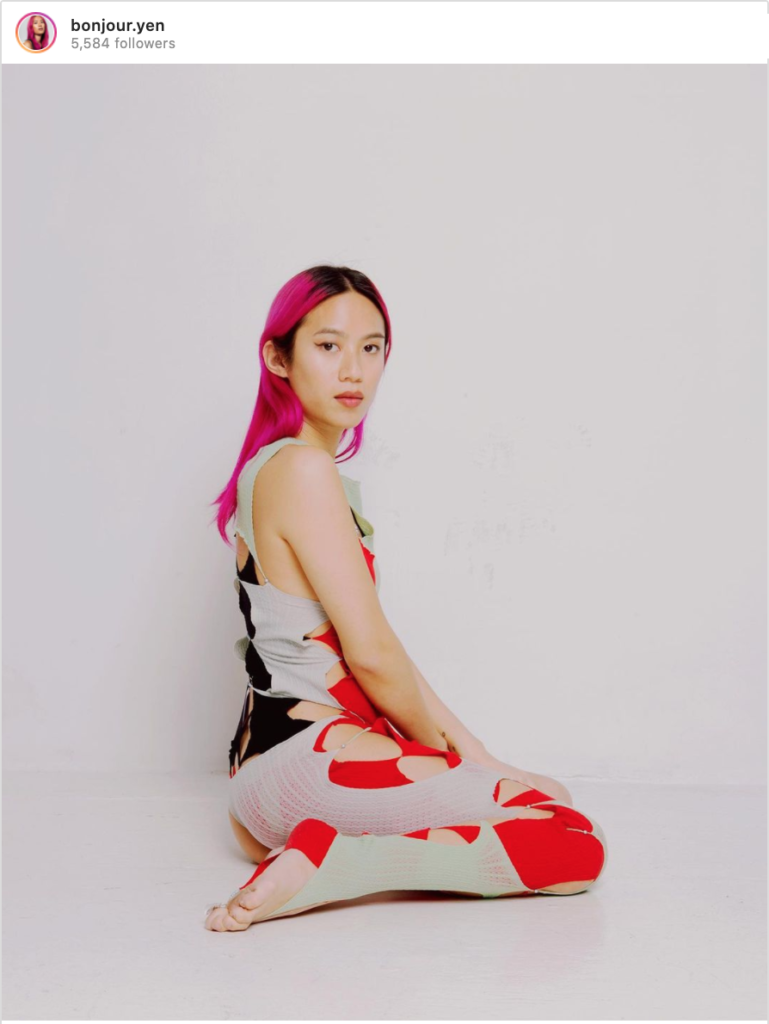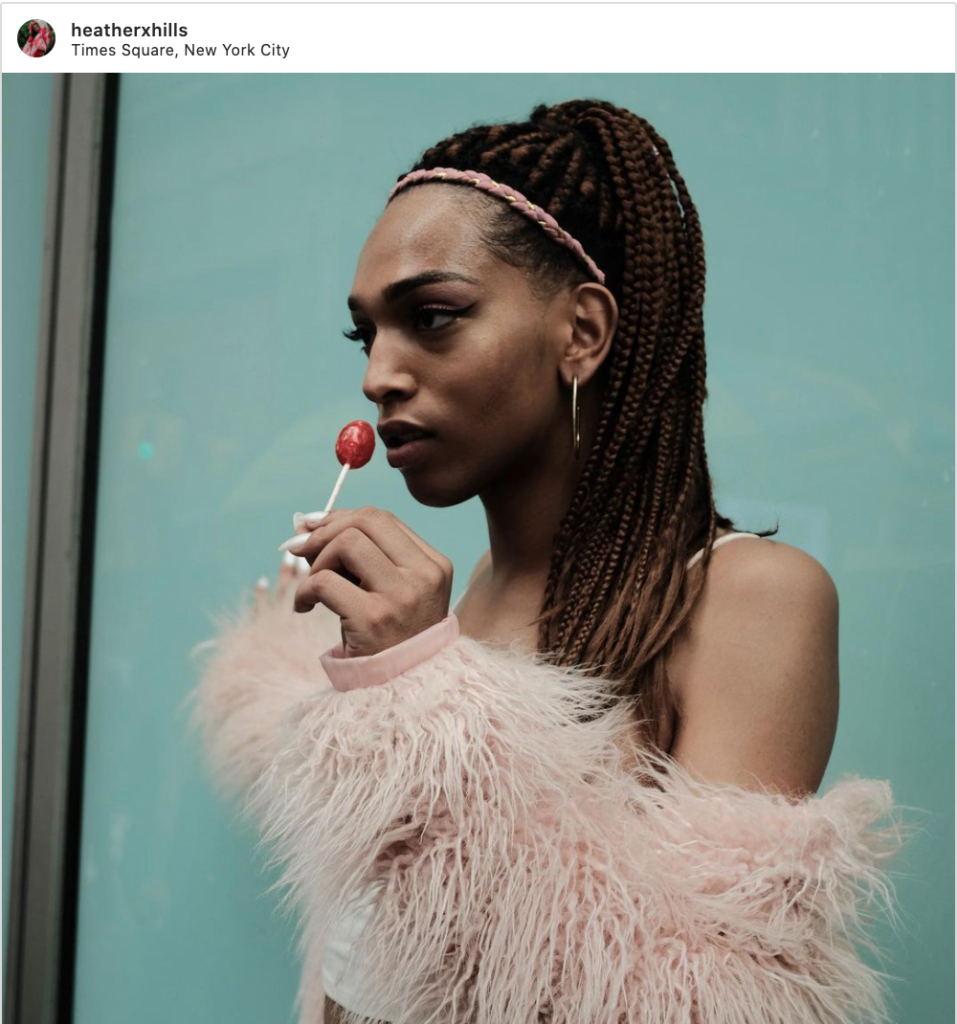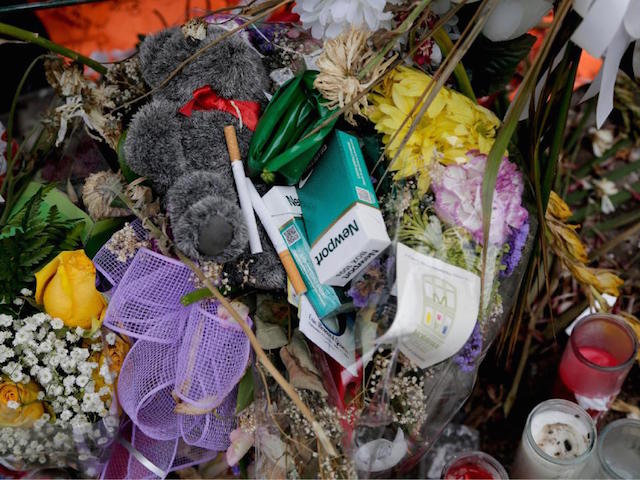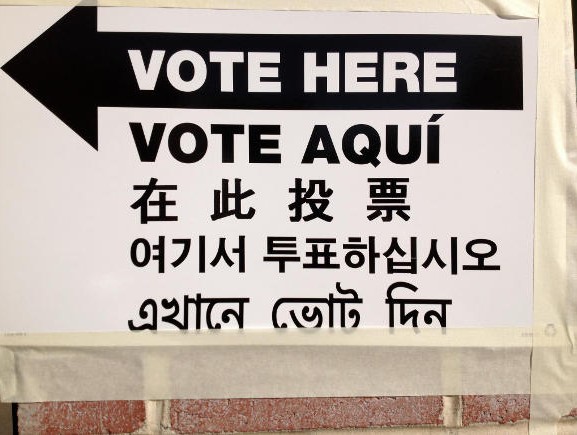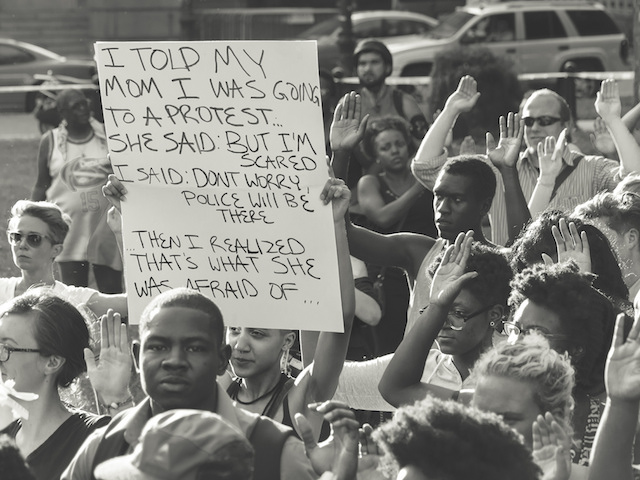Regardless of who is in the White House in 2021, Asian and Black trans women will not be ignored or silenced. Even with a Biden win, the fight is not over.
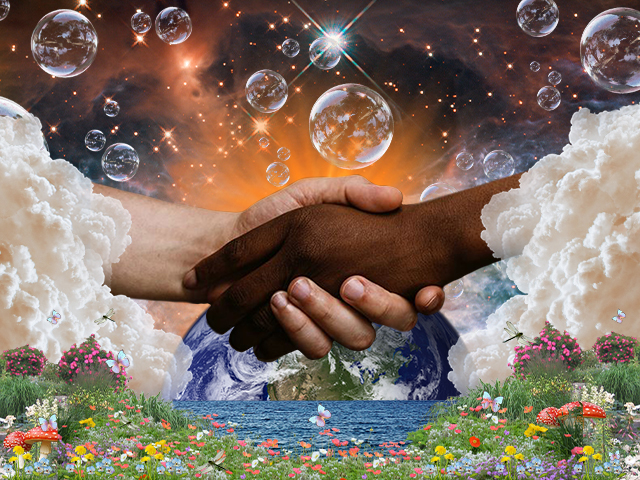
November 19, 2020
Yen Nguyen is breaking barriers for Asian American trans women. Speaking over Zoom with her hair in a casual ponytail and no makeup on, she had that “model off-duty” look people spend hours trying to achieve. Turns out, she is a model. Recently, Elle featured her in an article—an achievement most models dream of. But intertwined with her success is the challenging daily life of an Asian American trans woman; she regularly faces anti-Asian racism and transphobia.
In her neighborhood, many people know about her transition. “I hear people on the street that say things or make fun of me,” she tells me. “Or someone who’s not from the area might catcall me, but the locals will tell them, ‘Yo, you know, that’s man,’ and they start screaming and yelling in the background.” For Nguyen, it’s a terrifying experience. “What if their masculinity all of a sudden snaps or something happens?”
Typically, she tries to keep a low-profile.
“When I am going from point A to point B, I do not interact or look at anyone, unless someone friendly says something nice, or has a question like, do you know which train I should take,” she says. Before beginning hormones, she was “very gender non-conforming” and faced a lot of ridicule. And while she used to tune out random transphobia with loud headphones, it’s a luxury she can no longer exercise due to increasing amounts of anti-Asian COVID-19 harassment and assaults. “I always carry mace with me these days. I always make sure I have something that I can use to protect myself with incase something were to happen.”
◻︎◻︎◻︎
To be a trans woman of color in 2020 is complicated.
While positive media coverage of trans people is increasing, and President-elect Joe Biden vocalizes support for the transgender community, it doesn’t mean that all trans peoples’ lives are improving. For many Asian and Black trans people, the intersection of race and trans identity make isolated one-off successes challenging to celebrate, especially when both communities continue to face daily racial and transphobic violence.
Trans women of color today face increasing threats to their personal safety. The COVID-19 pandemic has led to an uptick in anti-Asian hate crimes across the country, including violent instances of verbal and physical assault. An October Stop AAPI Hate report documented 2,583 cases of anti-Chinese and anti-Asian discrimination and violence between March 19 and August 5. Throughout the country, Asian American businesses continue to face pandemic hysteria-related difficulties. And for Black Americans, police brutality continues to rise unchecked, resulting in 142 murders in 2020 alone. As the Black Lives Matter movement gains momentum nationwide, Amnesty International USA also reported in August 125 incidents of police brutality against protesters and participants.
Unfortunately, Asian and Black communities are continuously being gaslit.
On social media, Asian Americans are consistently written off when reports of anti-Asian crimes surface. And for Black Americans, conversations like “slavery ended so long ago” and the All Lives Matter movement actively silence Black voices demanding justice. Without their struggles recognized and taken seriously, it’s impossible for any social progress to happen—much less for trans people who are Black or Asian American.
For trans people, America’s political environment grows increasingly volatile. Since Donald Trump became president, his administration has actively reversed critical LGBTQ+ civil and legal protections, including removing all LGBTQ+ community mentions from the White House, Department of State, and Department of Labor websites, attempting to ban trans individuals from serving in the military, permitting homeless shelters to discriminate against trans individuals, banning United States embassies from flying the Pride flag, discouraging the Centers for Disease Control and Prevention from using the words “transgender” and “diversity” in reports, removing transgender protections from the Affordable Care Act, and more.
The Trump Administration did, however, find it appropriate to host a Trump Pride event in October, despite President Trump’s complete disregard for LGBTQ+ civil rights. “I know what my father believes in. Prior to politics, he supported gays, lesbians, the LGBQIIA+ community,” Tiffany Trump states during the event, leaving out the “T.” In an interview after the event, she also leaves out the transgender community. While it can’t be confirmed that Trump’s daughter was intentional with her speech, it does reflect her father’s disregard for the trans community. What we can confirm is that counting from 2017, 110 trans individuals have been murdered—2020 is not over yet, and the number may increase—and GLAAD has tracked 181 attacks on the LGBTQ+ community in almost four years. Sadly, 2020 has proven to be the deadliest year on record for the transgender community, with graphs showing an alarming increase in murders since 2013. While the racial experiences of Asian and Black trans women differ greatly, both communities have faced unimaginable transphobia and violence.
◻︎◻︎◻︎
On Heather Hills’ Instagram, you immediately learn two things: she’s a talented musical artist, and she’s actively increasing representation of Black trans people in music. Her record label, Trans Trenderz, recently had their music video “Splash” featured in Paper Magazine, showing that transgender artists are increasingly being recognized in media.
Hills is conscious of the many ways being trans affects how others view her. “For the most part, it mostly consists of watching my back in several different senses,” she tells me over Zoom. “Double checking everybody around me, how I may be being perceived, and [that perception] is affecting people’s emotions, determining whether I’ll continue to be in that space or not.” Hills is now particularly sensitive to her surrounding environment. “When I’m in large groups of people, because I’m Black, trans, and also being 6’2, I tend to intimidate people just by showing up.”
The only place she feels fully at-ease is her home. “COVID has been a girl’s dream; I can still perform and interact with people, but I don’t have to leave my safe space.”
The last time she felt that degree of comfort was in adolescence. Young and androgynous, she “was still growing into” her features while feeling like “just being femme was kind of like, almost enough.”
The bitter truth is that transgender adulthood often entails pain and hardship, something confirmed by the rise in anti-trans violence in 2020.
◻︎◻︎◻︎
In 2015, the National Center for Transgender Equality released two surveys on U.S. Asian and Black trans communities.
Out of 783 respondents who were Asian trans women: 43 percent of all respondents live in poverty, 40 percent of all respondents have attempted suicide 13 percent have faced unemployment, 31 percent have been “fired, denied promotion, and/or not hired,” 11 percent have been physically attacked, 47 percent have been verbally harassed, 36 percent have been sexually assaulted, and 60 percent have been mistreated by police/law enforcement because of their gender identity.
Out of 796 respondents who were Black trans women: 52 percent of all respondents live in poverty, 47 percent of all respondents have attempted suicide 22 percent have faced unemployment, 47 percent have been “fired, denied promotion, and/or not hired,” nine percent have been physically attacked, 44 percent have been verbally harassed, 16 percent have been sexually assaulted, and 61 percent have been mistreated by police or law enforcement because of their gender identity.
Both Black and Asian trans women actively experience the effects of racism, misogyny, and transphobia; whether it’s the way cultural discussions about transgender issues actively ignore or mock Asian American trans demographics (“I feel there’s a lack of inclusion for Asian trans women within the trans community. And we’re always left out of the conversation,” Nguyen says.), or the way in which Black trans women are continuously ignored by politicians and denied access to tangible support and justice. In order to build solidarity between Asian Americans and Black Americans, we need to recognize that historically, these communities have been pitted against one another.
The well known “model minority” myth pits Asians against other groups of color, implying Asian Americas are the ideal minority due to their work ethic and silence. Ultimately, this myth positions Asian Americans as a wedge between whiteness and other minority groups, especially Black Americans. Unfortunately, the model minority myth continues to prevail in American culture, perpetuated by non-Asians and Asian Americans alike. At the same time, Asian American socio political awareness and introspection has developed since the terms’ appearance in the 1960s. Many Asian Americans (myself included) actively reject the antiquated term, recognizing the harm it causes between groups of color and to Asian identity as a whole. And with the myth rejected, the importance of Asian and Black solidarity is continuously being emphasized.
Despite Asian and Black American history being manipulated by outsiders that regard both groups with racial disdain, 2020 proves that both communities can actively uplift one another. Throughout the country, Asian Americans are calling for the support of Black American communities. The Asian American Advocacy Fund and The Legal Aid Society have both provided resources for establishing Asian and Black racial solidarity. Across the country, Asian Americans have protested anti-Black racism in America, and Black Americans have protested anti-Asian COVID-19 violence. While 2021 will undoubtedly bring new challenges, recognizing the impact Asian and Black solidarity carries means both communities can mutually establish cross-racial solidarity practices across the country.
◻︎◻︎◻︎
For many trans people, four more years of President Trump would have meant the continued reversal of countless LGBTQ+ rights that advocates and lawmakers have fought for.
“What I’m most worried about is the repeal of gay marriage,” Hills says. “A majority of Americans don’t understand queerness outside of cis-heteronormative gayness. And the statue of cis-heteronormative gayness is gay marriage. Once they repeal that, then that’s one big win for them. And once you go for a win, you go for another, which means they’ll start pulling all things queer and trans.” Nguyen has similar fears. Especially with Amy Coney Barrett in the Supreme Court. “That definitely makes me really scared,” she says.
For myself, as an Asian American trans woman, I worry it’ll be too late before transgender civil rights are taken seriously in the United States. Every morning, I pray that I don’t see another news update about a trans woman murdered. For many trans people, some daily fears include (but are not limited to):
- Healthcare systems being legally allowed to discriminate against transgender patients or clients.
- Government and legal agencies not recognizing transgender identity, and refusing to allow actions like gender and name changes to be processed.
- Businesses being allowed to refuse service to transgender customers based on religious ideology.
- Abusive practices like conversion therapy still legally being allowed to operate.
We are two months away from 2021, and given the country’s current political uncertainty, violence (both legal and social) against the trans community may rise. Despite the fact that President Elect Biden won the 2020 Election, there is widespread rejection of the results. And considering Biden openly addressed the transgender community in his victory speech, I recognize him as a step towards justice trans people need in this country.
◻︎◻︎◻︎
Regardless of who is in the White House in 2021, trans women of color will not be ignored or silenced. Regardless of the industry they work in, trans women have opportunities to highlight POC trans-identities. Some trailblazing trans women I personally applaud are:
- Janet Mock. Since FX’s Pose released in 2018, she has unapologetically brought POC LGBTQ+ struggles to mainstream audiences, even securing the show an Emmy nomination in 2019.
- RuPaul’s Drag Race alumnus Gia Gunn and Jiggly Caliente. Both have openly spoken about their experiences as Asian American trans women in entertainment, an industry that routinely ignores Asian and transgender voices.
As seen across the news and social media, advocates across the country are demanding justice for victims of transphobia, anti-Asian and anti-Black racism, and also calling for police reform. With tools like social media, advocates have been able to rally nationwide (and even global) support for various movements. For instance, the Black Lives Matter movement has gone from a grassroots activism to a global phenomenon within years. This includes actions like:
- The work of Black Trans Lives Matter activists who have insisted that trans people will be included in the Black Lives Matter movement.
- Since COVID-19’s appearance, Asian American organizations like #HATEISAVIRUS are diligently working on documenting the growing number of hate crimes.
- American voters are demanding police be held accountable for their actions and work practices nationwide, particularly under Biden’s new presidency.
- Across America, Black Lives Matter protests continue to stand strong, regardless of the election results.
Asian and Black trans-solidarity can be furthered by upapologetically bringing attention to the discrimination both parties face (beyond just Instagram posts and impassioned Tweets.). And once attention has been drawn to both communities obstacles, Asian and Black trans women and their allies must ensure legal protections (i.e. Bathroom laws, healthcare protections), social protections (i.e., Protect trans women in public spaces from violent assaults and murder), and cultural engagement (i.e., More trans people of color in entertainment, media, politics, professional, corporate, and academic spaces) are actively established to ensure Asian and Black trans-voices have a say in politics, policy, and culture.
When people are discussing transgender issues, make your experiences as a Black or Asian American person known—don’t feel you’re being “loud” or “divisive.” And if you belong to either racial community, demand that civil rights conversations recognize your transgender experience. For Asian Americans specifically, actively reject the model minority myth that separates us from other communities of color.
Just as the Black Trans Lives Matter movement is pushing for the Black Lives Matter movement to recognize Black trans people, it’s critical that Asian American movements center trans voices and experiences. Asian American LGBTQ+ communities are already ignored within larger queer contexts. If trans-Asian Americans can’t even turn to their own racial communities for support, they are only further marginalized and silenced.
For Hills, “events and conversations surrounding the many ways in which either community was affected by white supremacy,” are crucial to fostering Asian and Black communication despite both having been “turned against one another.”
And for Nguyen, safe spaces like “events and parties have always been an organic way of building and bringing community together.” She credits events with helping her build friendships and even a chosen family. She recognizes that COVID-19 makes events difficult to navigate. “So until [the pandemic is over], I think we have to continue to support one another in the safest way possible through digital spaces,” she writes. “Whether it’s boosting individual or organized crowdfunding endeavors, continuing to create with one another, having virtual live talks/events that involve both races, sharing information, and advocating and protecting our Black trans-sisters and siblings.”
It’s easy to assume the only way civil justice will progress is via electoral politics, but real progress begins with active conversations with peers, academics, family members, friends, opponents, and local politicians unaware or ignorant to the issues transgender PoC communities face. Education is a cornerstone of progress. .
2020 has been a year of constant antagonism targeting the civil liberties of women, LGBTQ+ people, and people of color. To recognize transgender communities’ demands and necessities means we recognize all marginalized communities demands and necessities.
By combining advocacy for Asian and Black trans women, our society can actively dismantle a patriarchal system that would rather both sides not cooperate. Even if opponents of gender and racial equality have attempted to keep both communities hostile toward one another, it doesn’t mean things can’t change. 2021 is the year racism, sexism, transphobia, and ignorance will be directly challenged, and hopefully, brought closer to eradication.
And most importantly, the general public must understand that even with a Biden win, the fight is not over. Biden’s presidency marks the sentiment that the United States of America is indeed a country that values sociocultural diversity, no matter how hard loud the critics are. But just valuing diversity isn’t enough — ensuring that all communities, regardless of their race, sex, gender identity, cultural background, or beliefs are treated with dignity. That begins with liberating Asian and Black trans women from the cultural barriers that perpetuate our marginalization.
For Hills, she’s happy about President Elect Biden’s win, but is still worried that “liberals and centrists” will use the situation to “pretend that all of the social issues” America is dealing with are now irrelevant. “I am worried for the future of America regardless of Trump no longer being president,” she writes to me. “How many times have we seen progress snatched away by the random nomination of a conservative president?” Her worries echo the sentiments many LGBTQ+ advocates are thinking in light of the election. “I just hope that from here we increase the work we’re doing,” she writes.
And for Nguyen, she feels optimistic regarding the future. “In this very moment, I feel hopeful, especially after the four year shitastic nightmare we just endured,” she writes over an email. “It seems that the Biden administration is actually recognizing [the transgender community] and is willing to listen and learn from us, unlike the previous [administration and President Trump].” She’s also thrilled that Vice President Elect Kamala Harris announced her pronouns, and President Elect Biden mentioned trans people in his speech. “I know a lot of people are criticizing these moments as not enough and mediocre, but we all have to remember that we all started somewhere ourselves. None of us are perfect and are constantly growing, so it’s important that we give them that chance and time to evolve and grow as well.”

